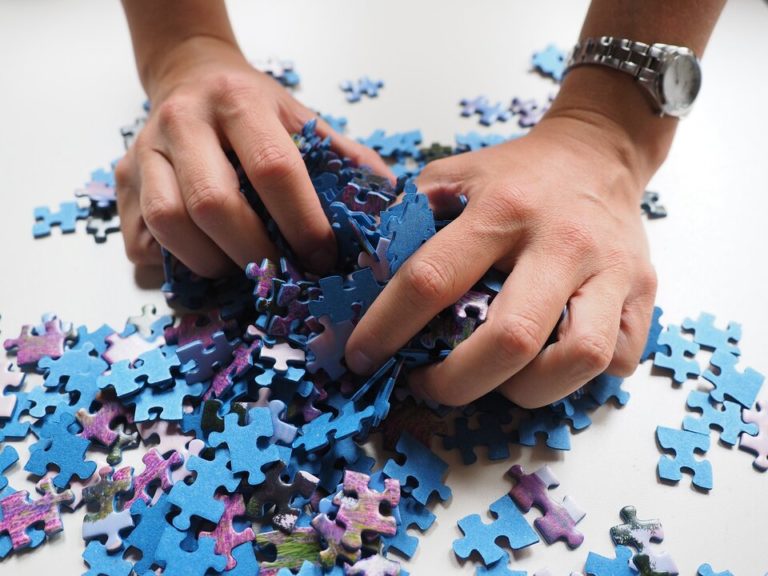How do I become more patient? A Step By Step Guide...


By Antoine G Larosiliere
If you’re like me, I’m sure you’ve thought about it or tried to figure out; how do I become more patient?
I’m not sure if it’s because I’m a New Yorker, or an immigrant but I’m constantly hustling and bustling; with very little patience for people who don’t, or circumstances that have very little benefits. I’m not sure who said it, but I think the saying is, “all good things come to those who wait.” If that’s true, how do I become more patient? After much research, and experiences through trial and error; what I’ve learned will likely change your life.
What is patience?
According to vocabulary.com, patience is a person’s ability to wait something out or endure something tedious, without getting riled up. According to the Cambridge Dictionary, it is the ability to wait, or to continue doing something despite difficulties, or to suffer without complaining or becoming annoyed. The word I notice in both definitions is “waiting.” The rest of both definitions seem to convey that there is a certain amount of calm and composure that must accompany this act of waiting. But to be able to execute such composure requires a degree of awareness and acceptance.

What are the symptoms of being impatient?
It’s not a great feeling when you struggle with impatience, and most people usually have a pretty good idea if this is an issue in their life. Being impatient has many symptoms ranging from physical, emotional to social; and there’s been plenty of research that supports this. In a 2016 study published in the “Proceedings of the National Academy of Sciences of the United States of America” found that impatient behavior is linked to speeding up the aging process in our bodies. A few examples of potential symptoms include…
Physical
- Shallow breathing and fast breathing.
- Tensing up of the muscles.
- Clenching of the hand or balling of the fist.
- Restless legs or the tapping of your feet.
Emotional
- Constant mood changes.
- Can feel annoyed.
- Problems with anger.
- Problems with anxiety.
Social
- Rushing to make decisions.
- Can become irritable in social situations.
- May become stand-offish.
- May begin to complain too much.

Why should I become more patient?
I’ve heard love is patient, and you must be patient when growing your business. You also must be patient with your customers, and as a teacher I must be patient with my students. It appears being patient is tied to success in every industry and in every relationship; but why is it so important? Being patient has many benefits, both personal and professional.
Professional benefits include…
- Helps achieve long-term goals.
- Increases your chance of making rational choices.
- Attracts colleagues to you.
- It helps improve your reputation.
- Prevents misunderstandings and unnecessary arguments.
- Allows you to reassess your expectations.
Personal benefits include…
- Helps you become a more relaxed person.
- Makes you appear more attractive.
- Improves your overall health.
- Allows you to show more empathy
- Helps you become a better communicator.
- Helps you become a better and kinder lover.
- Improves your ability to learn new things.
#1 Discover why you’re impatient.
Before we can solve any real problem, we must first discover the source of it. In the case of impatience, we need to discover what triggers it. According to psychologists Impatience is triggered when we realize the price for the goal we’re trying to achieve. For example, If you’re trying to watch a movie, but you have unfinished work to complete; the “price” of watching the movie is leaving your work unfinished. Therefore, the trigger is realizing you have unfinished work to do. Discovering these triggers helps you be more in tune with yourself and on a path of personal and professional growth. To discover what triggers your impatience, ask yourself the following questions…
- Is something interfering with a habit of mine or a routine?
- Is there something interfering with your personal time?
- Is there someone who’s on the prefascist of doing better than us?
- Are you in jeopardy of not meeting a deadline?
- Is there someone you’re being forced to listen to or be around?
- Is there something you must do, that you don’t feel like doing?
- Is there something that you’re waiting on that still hasn’t produced results?
- Are you trying to do something that you have very little interest in?
- Did something offend you or hurt your feelings or belief?

#2 Create an incentive to wait.
Learning to be patient leads to our happiness according to a study published in Psychological Science. Therefore, we must do everything we can to become more patient. It’s a lot harder to force yourself to wait, if you don’t have or can’t see an incentive to do so. Many of the general benefits to being patient were stated in the previous section of this article; but for many of us, that’s not enough of an incentive. What helped me more was to take those general benefits and create specific incentives from them. For example, if the general benefit is to prevent misunderstandings and arguments; choose a specific person that you’re hoping to not have a misunderstanding or argument with that day. Then focus on the peace, productivity, or collaboration that will be achieved that day; if you are able to be patient.

#3 Learn to relax
Learning to relax has always been a problem for me, mostly because I never felt the necessity to do so. Most of my anxiety is usually addressed by altering my perspective, and being resourceful in finding solutions. Mindfulness and meditation are effective strategies to dealing with negative emotion and impatience. Mindfulness is a mental skill that allows us to focus on the present by feeling the emotions and being aware of the thoughts as they happen in real time. Meditation allows us to breathe and let the body relax, while focusing only on the next breath. Combined, research has shown that they have positive effects on lowering blood pressure, improving blood circulation, as well as decreasing anxiety and stress.The only experience I have on the topic of mindfulness and meditation is teaching my 10 year old son; who has ADHD the count-down and deep breathing method to calm himself. I found it to have positive effects on calming my son and to apply it for yourself, you must…
- Stop: when you feel yourself getting upset or stressed.
- Count to 10: Do it slowly and NOT out-loud.
- Count to 20: If counting to 10 isn’t long enough count to 20.
- Close your eyes: Start out this way to help block out distractions, but it is not recommended if you’re not alone or out in public.
- Focus on breathing: Take slow deep breaths with each cout. Inhale = count 1, exhale = count 2
Mindfulness and meditation can truly change your life and their benefits are well documented. If you need more resources, try a few of these apps..
-Headspace – A meditation guide everyone can use.
-Smiling Mind – Focused on mindfulness by helping you track your mood.
-Personal Zen – A science-centered app that helps to reduce stress and anxiety.
-Calm Build Patience – Which delays your text reply time to reduce impulse messages

#4 Embrace the discomfort
The harsh truth is that you’ll never grow in life without some form of discomfort. If you’re impatient, there will be some discomfort that comes with it.Those moments of discomfort can sometimes feel like eternity. It doesn’t matter if those discomforts come in the form of anxiety, mood swings, or the tensing of muscles; it’s still an opportunity for growth. To take control of those moments and begin to grow, you must first embrace the discomfort. You’re not embracing these moments because you enjoy being miserable; you’re embracing them because they will lead to growth and a better version of yourself. Having this simple change in mindset will make your discomforts a lot more bearable.
#5 Visualize being patient
You’ve probably heard that before you can execute a specific task, it helps to see yourself doing it first. You might even be familiar with The Law of Attraction, where by consuming your thoughts with what you want or, trying to achieve brings them closer to you. In either case, visualizing being patient brings you a step closer to that goal. In your mind you’ve already done it and felt what it was like to be in that place. Accomplishing it at that point becomes easier and more of a formality. To practice visualizing being patient, try…
- Being proactive: Start practicing before the situation you’re practicing for resurface again.
- Find a quiet place where you can be alone: Or find the right time of day that allows you to have quiet time.
- Visualize the scenario: Play out the situations in your mind that causes you to be impatient.
- Visualize being patient: Visualize exactly how you want to react, including the words you choose and the specific sequence of actions.
- Visualize other’s reactions: Try to picture the reactions of the person directly associated with your impatience and the people who will witness the interaction.

#6 Turn your focus to something else
There are some situations that due to no fault of our own, require a lot of wait time. Some of these situations include a bus ride, train ride, waiting for a flight, or waiting on a long line to get into a store or restaurant. In such situations, the best course of action to speed things up is to distract yourself. Luckily for this generation we have smartphones to accommodate us during our trying times. There are so many things you can do to fill in that time. Try playing a game, or watching a new T.V. episode on your phone. Surf through your various social media platforms, listen to a podcast; maybe finish some unfinished work or email correspondence.
#7 Familiarize yourself with your triggers
We all have different levels of patience that challenge us in different ways. To meet those challenges; we must discover and familiarize ourselves with what is triggering us. Some of us have triggers that are routine through our days and weeks, other triggers are more covert in their appearance. Some triggers lead to major consequences, while others lead to minor ones; but nonetheless their discovery is paramount to having a better understanding of your shortcomings. To discover your triggers, try asking yourself the following questions…
- Did someone oppose a belief or value of yours?
- Did someone reject you, or are you expecting a rejection?
- Did someone betray you, or are you anticipating a betrayal?
- Is something happening, or did something already happen that you lost the ability to control?
- Are you being excluded or ignored?
- Is someone or something smothering you?
- Are you being criticized or shown disapproval?
- Did you see, hear, taste, touch, or smell something that reminds you of a previous traumatic experience?
- Did you lose your ability to be independent, or was it taken from you?
- Did someone say, imply or do something that challenged a fear of yours?
“Control only what you can control, yourself.”
#8 Don’t waste your time trying to control those who make you impatient.
Often when we are impatient, it’s stemming from relationships. It could either be from professional, or personal relationships. Someone you have a relationship with did something or said something that resulted in you waiting unnecessarily. You can’t predict or control what someone else will say or do; so, don’t try to. You will wear yourself out, and add to your anxiety without your efforts bearing any fruit. Control only what you can control, yourself. Focus on controlling your actions and your reactions to the things people do that causes you to be impatient.

#9 Stay focused on your purpose.
It’s easy to get impatient when you don’t see the bigger picture, or don’t realize your purpose. So, you should definitely figure that out first. Figure out what you want the end goal to be of whatever task that’s making you impatient. If what’s making you impatient doesn’t interfere with your end goal, then don’t allow it to make you impatient. If something does interfere with your end goal, it’s because your end goal is short sighted. The end goal should ultimately be centered around growth and success, and dealing with these interferences that make us impatient prepares us for just that.
#10 Incorporate other healthy activities to relieve anxiety.
If you’re upset or feeling some anxiety from a situation that’s challenging your impatience, distracting yourself may not be enough. Finding outlets that can ease any lingering anxiety will definitely help, especially healthy ones. You should implement them whenever you’re feeling overwhelmed, angry or frustrated. The most effective and healthy outlets are either physical in nature, productive or creative.
Physical Outlets
- Weight training
- Yoga
- Running
- Hiking
- Dancing
Creative Outlets
- Writing
- Painting
- Drawing
- Photography
Productive Outlets
- Cooking
- Gardening
- Cleaning
- Reading
#11 Find inspiration in patient people.
I’m an educator and modeling what we’re trying to teach is what we do. There’s a saying, “experience is the best teacher,” but in my experience the “model” is the safest teacher. Experiences although do teach us, they often come at a price we are usually not willing to pay. Therefore, the safest alternative is to find a model of the behavior you’re trying to learn. Look at the people around you, and all your acquaintances. How are they dealing with their impatience? Learn from the people who are patient. Observe and listen to what they do when dealing with a difficult situation. Then, do exactly what they do. Don’t alter or change anything, until you’ve consistently applied what they’ve done.

#12 Teaching Patience.
As an educator, after we’re done modeling to our students; one of the ways we assess if our students have learned the skill is by encouraging them to teach their peers. No one fully learns anything on the first try. Sometimes even after you’ve learned something, it still hasn’t fully sunk in. Even if you’ve done it before, there will be flaws and inconsistencies in your execution. Teaching what you’ve just learned to other’s reinforces and solidifies your understanding of it.
#13 Create an Action Plan .
The saying goes, “if you fail to plan, you plan to fail.” My former principal used to say that to the teachers during department meetings when referring to our lesson plans. What this means for the purpose of impatience is; if you don’t put a plan in place that will outline how you can become more patient, you will remain impatient. So, create an action plan. To do so, here are some suggestions…
- Create a specific goal: In this case it would be becoming more patient. It should also be long term (months/years).
- Assign a timeline for that goal.
- Create a list of specific steps that will lead you to be more patient.
- Place each step in the order they should be accomplished.
- Outline the frequency of each step. Example: Once a day, once a week….?
- Create a timeline for each specific step: This should be short term (days/weeks).
- Indicate the point of success before moving on to the next step. Example: When the step is executed successfully 3x consecutively?
- Outline the appropriate resources that will aid in accomplishing each step.
- Create a spreadsheet to monitor your progress.
#14 Celebrate every bit of progress.
Don’t let your accomplishments go unnoticed, even the small ones. Don’t wait for others to notice or celebrate your progress, do it yourself. We have to try to be our own motivators, cheerleaders and sponsors. Reward yourself for every small step, even if the reward is small. It gives us the fuel to make it to the next goal, and the one after that. It’s hard enough to work on our shortcomings, and some of us don’t have the support system in place to help us through. So, become your own support system for the time being.
Life is difficult and no matter how patient some of us are, our patience will still be tested. Patience is a skill we all need to work on, even after we’ve shown tremendous progress. It will help us all live happier, more successful and peaceful lives. Hopefully this article has been helpful. Also visit my YouTube channel for more insight to these topics.
The Bully Experience "Daniel's Story"

Sign up for our newsletter and Read the novel For Free!
Stay updated. Sign up for our newsletter, and get the first two chapters of The Bully Experience Daniel’s Story absolutely free.